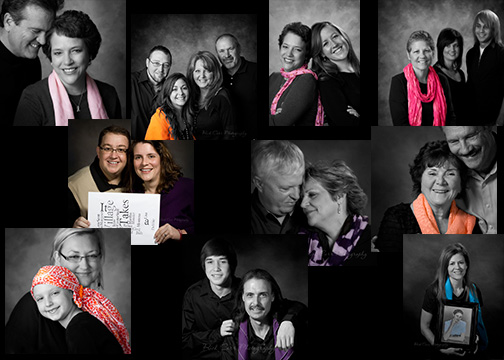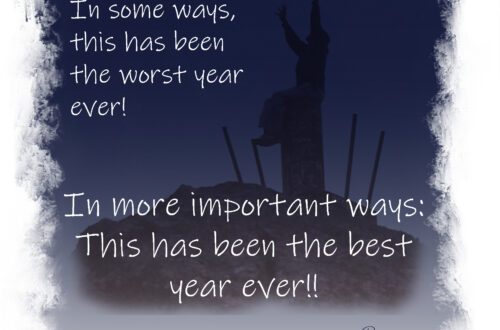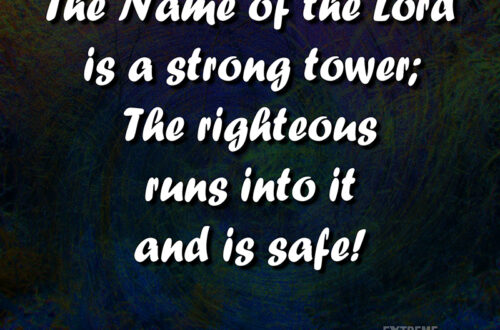Another of my friends from high school passed away this week. It’s hard to believe someone so young could be gone. Okay, so we aren’t so young anymore; but still, we aren’t all that old either. Anyway, Diane is with the Lord she loved and served all her life, even through a prolonged illness. Her husband and family are grieving their loss, and hoping the pain will subside. Why? Why couldn’t she live another 20 or even 30 years?
In 2009, I was diagnosed with and treated for cancer in my throat. The saying is, from the time you’re diagnosed, you’re considered a “survivor,” every day you live. During and after my treatment, I met a number of other survivors. Some were still in treatment. Others were a few months, two years, even three or more years out from treatment.
Most of them had stories of how their family pulled together around them to support and care for them. Others had friends who stepped in to help and encourage them. One couple had an “It takes a village” sign that listed family, friends, co-workers, and care-givers who were making a difference in their lives as they walked through the cancer experience. Almost all of them had a new appreciation for life and a joy that defied the life-threatening, scary disease that so rudely interrupted their lives.
“Why?” is usually the first question out of our mouths when anything bad happens. When we feel devastated, hurt, confused – we want to know, “Why? What am I supposed to learn?”
Separation/divorce, rebellious child, alcoholic family member, abuse, injuries, disease….
We can cop out and say, “If God is all knowing, all powerful, and loving, He would not allow this. If He could stop it, surely He would. Since He doesn’t, He’s either cruel, so I want no part of Him; or He doesn’t exist at all.” It’s sure a lot easier to respond that way. When faith is challenged, it’s hard to hold on.
The truth is, we are going to hurt. We are going to experience physical pain, emotional trauma, and faith-challenging hardships. We are going to experience the whole range of human emotions. And that is okay. It is the way we are made.
When I am really hurting, or when you are, the last thing any of us wants or needs is someone, especially someone who has not already invested time and love and relationship in our lives, telling us to, “Cheer up. Everything is going to be alright.” “God works all things for our good.” “Don’t be sad, they’re in a better place.” No matter how true those words may be, at that moment, there is no comfort in them.
One of the goals of this blog, and of my book, is to deal with the question, “Why?”. Over the coming days, I hope to offer some meaningful insight into how to understand and respond to life – both the good and the bad of it. Here are some thoughts to start the process.
The answer is really pretty simple. Maybe I am being too simplistic. Then again, maybe “simplistic” is just exercising the “faith of a child.” Children don’t question a lot, they just trust. Maybe it is time the body of Christ “simply” accept what God is doing. Maybe, the problem is, we fail to realize that God really is doing something. Sometimes, we live as though we do not really believe that God is actively doing anything.
Too often we base our conclusions on only those things that are obvious to our five, frail, physical senses. And, much of what we observe is not good. In addition, we compartmentalize our lives, separating the spiritual from the everyday. We look at the everyday stuff as the real world and the spiritual as, well, spiritual stuff. It’s kind of nice. It’s probably important. But, we are not really sure what to do with it. So we “be spiritual” from time-to-time – Sundays, maybe Wednesdays, maybe for a few minutes “quiet time” most mornings.
In addition, we compartmentalize aspects of our spiritual lives. There are the things that have to do with spiritual growth – truths about what God has done for us and will do in us and through us, and about spiritual growth and maturity. Then there are the practical everyday things about how we are to live and minister in the “real world.” We talk about the cross, denying yourself, resting in the Lord, faith…. Then we talk about ministry, witnessing, discipleship, prayer and other aspects of the Christian life as a separate line of teaching – and never the two shall meet.
What we forget is that the “spiritual stuff” is the foundation, the motivation and the power for accomplishing any of the “practical stuff.” Paul said he only preached “Jesus Christ, and Him crucified.” Look at how “practical” much of Paul’s teaching was. He was not saying he only preached evangelistic messages. He was saying that the cross of Jesus is key not only for salvation, but for how we live. It has implications for all of the Christian life. The cross of Jesus is the power (the ability, the inherent capabilities) of God Himself released in those who are being saved (1 Corinthians 1:18).




